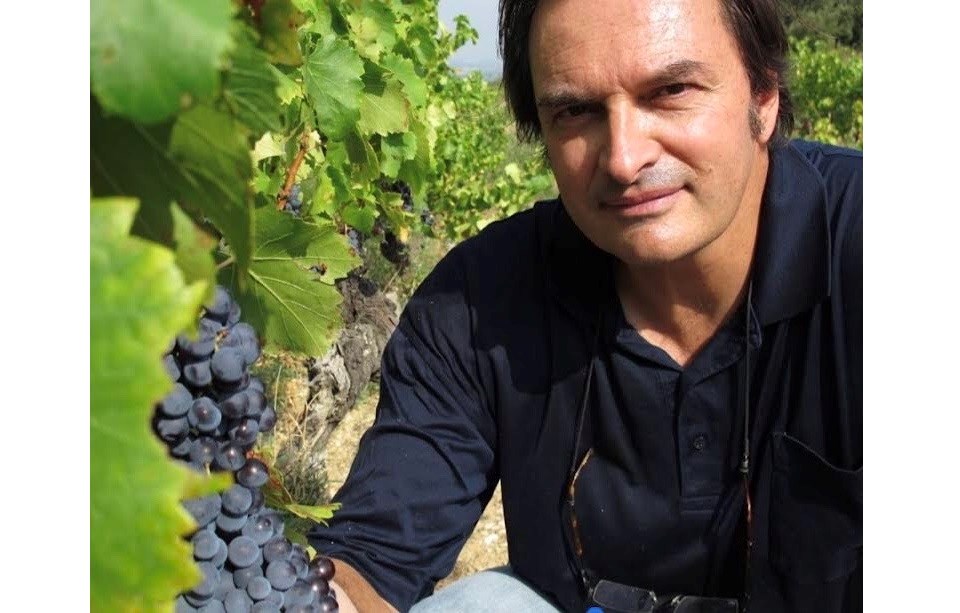I had the good fortune to recently attend a special wine pairing dinner at Boulevard Kitchen and Oyster Bar at the Sutton Place Hotel. The gourmet event was organized by World Wine Synergy, a Vancouver wine agency well-known for working with over 60 international boutique wineries that focus on sustainability and indigenous grapes.
In attendance was Frédéric Sigonneau of Loire’s Domaine de l’R with his biodynamic wines, the subject of last week’s column.
This week I discuss Domaine Duseigneur. Founded in 1967 by Jean Duseigneur, a fifth-generation family business from the southern Rhone Valley and home to world-renowned Chateauneuf-du Pape that cares about yielding biodynamic and sustainable winemaking practices. Today, Duseigneur's son Bernard has taken over the duties.
All their wines are certified biodynamic by Biodyvine and Organic by Ecocert FR Bio. Biodynamic pioneer Bernard Duseigneur’s family domaine was certified organic in 1998.
“It was just the way we always did things,” said the winemaker. “We never used chemicals or anything, for generations,” he said, adding it’s crucial to have a good understanding of the environment
The Fourth Course of the Banquet was Roasted Venison under the supervision of executive chef Roger Ma. The venison was served with cocoa nib and oat crust, caraway sauerkraut, squash purée with pumpkin holiday spice, and currant jus which added a little acidity to go with the wine. And it was paired with Domaine Duseigneur Yamakasi Vin de France. ($31.99, SKU: 422516, Available in 14 Stores including 39th and Cambie, Dunbar, Arbutus, Park Royal, and Alberni.)
Lucy Goettle from Vignerons de Nature commented on Yamakasi: “This cuvée is very unique. It’s organic, biodynamic, and a natural wine. The name is not Japanese but African and means ‘free spirit.’ Duseigneur wants to try a new vinification technique with no intervention. It's a blend of 60 per cent Grenache, 20 per cent Cinsault and 20 per cent Syrah. The Grenache and Cinsault are direct pressed like a rosé whereas the Syrah is whole bunch pressed, carbonic maceration like a Beaujolais.”
The Yamakasi is fresh and vibrant, with subtle accents of herbs and supple tannins that provide a good structure on which the prominent red fruit characters of the grapes are fully expressed.
The final red was the Domaine Duseigneur Catarina 2018 Chateauneuf-du-Pape ($60.99 on sale until Dec. 31 $7 off, SKU: 166020. Available in 25 Stores including Richmond Brighouse, Ironwood, and the stores above for Yamakasi.)
Goettle commented on this 100 per cent Garnacha/Grenache blend: “It is completely different. It's a bit more serious, a bit more concentrated yet it is quite light and fresh.”
The Catarina is aged in old oak casks instead of new oak to preserve the purity of the grapes.
It was awarded 92 points by Vinous: "Shimmering ruby. Pungent, smoke-accented cherry and black raspberry aromas show fine definition and take on hints of licorice and garrigue with aeration. Sappy and broad in the mouth, offering pliant red and dark berry flavours and a touch of candied violet. Shows strong, spicy lift on the persistent finish, which is framed by dusty, harmonious tannins. Drinking Window: 2023 - 2030."
The final course was la sauvagine cheese with quince jam, nut and seed tuile matched with the Catarina Chateauneuf-du-Pape.
Dr. John Volpe of the University of Victoria’s School of Environmental Studies turned our attention to pairing wine with food. He is a renowned educator and enologist whose work explores the links between ecological and social sustainability in regard to terroir and the production of quality food and wine.
We had two very different wines and two dishes. Our mission was to determine the optimal pairing, the pairing of the Domaine Duseigneur Yamakasi and the Domaine Duseigneur Catarina 2018 Chateauneuf-du-Pape with the roasted venison as well as the cheese course.
A vote was taken afterwards and most guests preferred the Chateauneuf-du-Pape with the venison. Both the wine and the meat were bolder in flavour than the lighter combo. Not surprisingly, the lighter Yamakasi was preferred for the delicate cheese course over the bolder Chateauneuf-du-Pape.
Our splendid evening of tasting and dining was wrapped up by the master of wine, Barbara Philip.
“Old wine regions represent the history as well as the future. The wines we had tonight were produced with a 21st-century century consciousness, the environment and the effects of climate change.
"It’s really proof with the wine on the table (that wines) can be great without really doing harm to the environment. We have three really historical wines. The future is more natural non-interventional wines," Philip proclaimed.



